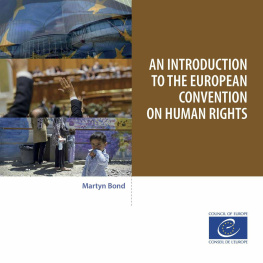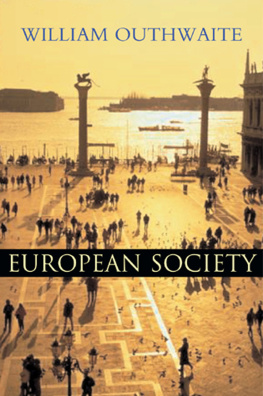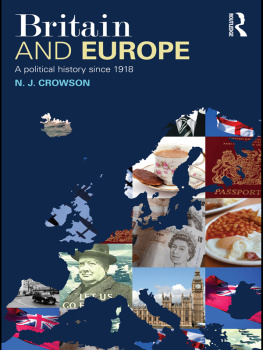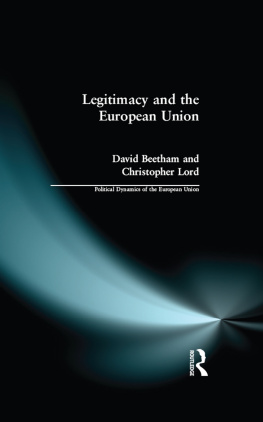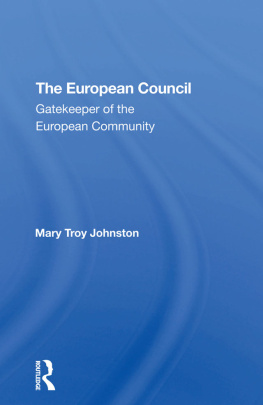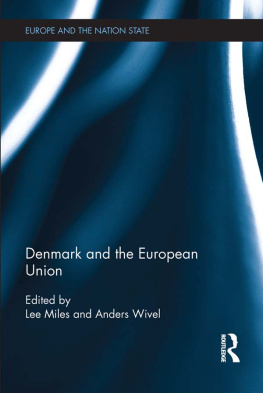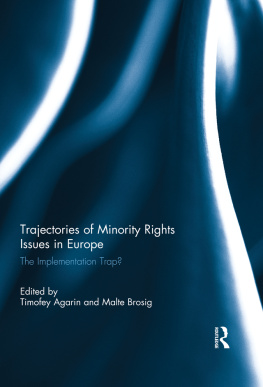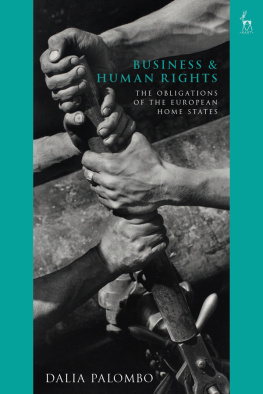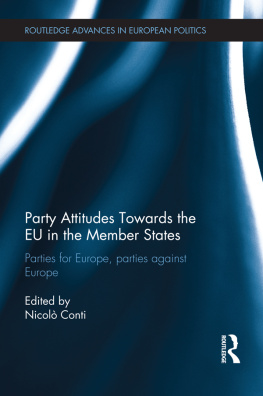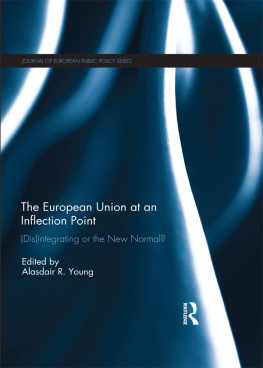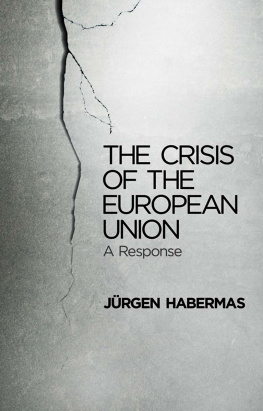The Council of Europe
This book provides a succinct and much needed introduction to the Council of Europe from its foundation through the early conventions on human rights and culture to its expansion into the fields of social affairs, environment and education.
Founded in 1949, the Council of Europe was the hub of political debate about integrating Europe after the Second World War. After the Berlin Wall came down in 1989, it was thrust into the limelight again as the test bed where all newly liberated European states had to prove their democratic credentials. Now it is the political arena in which the closely integrating states of the European Union (EU) face the 20 European states still outside the EU. Its European Court of Human Rights hands down judgments which all member states are obliged to respect, and its monitoring activities report on conditions concerning democracy, human rights and the rule of law across the whole continent. The Council of Europe has negotiated international agreements against the death penalty, torture, corruption, cybercrime and terrorism. It works for political pluralism, media freedom and fair elections. The treatment of minorities, efficient local government and strengthening nongovernment organizations are part of its daily agenda. Today the states of Greater Europe come together to discuss their present achievements and their future hopes in the Council of Europe.
Providing a wealth of factual information, and describing and analyzing the key debates within the organization, this work will be of great interest to students and scholars of international organizations, European politics, and international relations.
Martyn Bond is Visiting Professor of European Politics and Policy at Royal Holloway, University of London, and Patron of the University Association for Contemporary European Studies. He is also a Distinguished Fellow of the European Business School, Regents College, Senior Fellow of the Salzburg Seminar in Global Studies and Deputy Chairman of the London Press Club.
Routledge Global Institutions Series
Edited by Thomas G. Weiss
The CUNY Graduate Center, New York, USA
and Rorden Wilkinson
University of Manchester, UK
About the series
The Global Institutions Series is designed to provide readers with comprehensive, accessible, and informative guides to the history, structure, and activities of key international organizations as well as books that deal with topics of key importance in contemporary global governance. Every volume stands on its own as a thorough and insightful treatment of a particular topic, but the series as a whole contributes to a coherent and complementary portrait of the phenomenon of global institutions at the dawn of the millennium.
Books are written by recognized experts, conform to a similar structure, and cover a range of themes and debates common to the series. These areas of shared concern include the general purpose and rationale for organizations, developments over time, membership, structure, decision-making procedures, and key functions. Moreover, current debates are placed in historical perspective alongside informed analysis and critique. Each book also contains an annotated bibliography and guide to electronic information as well as any annexes appropriate to the subject matter at hand.
The volumes currently published are:
59 The Council of Europe (2012)
by Martyn Bond (University of London)
58 The Security Governance of Regional Organizations (2011)
edited by Emil J. Kirchner (University of Essex) and Roberto
Domnguez (Suffolk University)
57 The United Nations Development Programme and System (2011)
by Stephen Browne (FUNDS Project)
56 The South Asian Association for Regional Cooperation (2011)
An emerging collaboration architecture
by Lawrence Sez (University of London)
55 The UN Human Rights Council (2011)
by Bertrand G. Ramcharan (Geneva Graduate Institute of
International and Development Studies)
54 The Responsibility to Protect (2011)
Cultural perspectives in the Global South
edited by Rama Mani (University of Oxford) and Thomas G. Weiss
(The CUNY Graduate Center)
53 The International Trade Centre (2011)
Promoting exports for development
by Stephen Browne (FUNDS Project) and Sam Laird
(University of Nottingham)
52 The Idea of World Government (2011)
From ancient times to the twenty-first century
by James A. Yunker (Western Illinois University)
51 Humanitarianism Contested (2011)
Where angels fear to tread
by Michael Barnett (George Washington University) and
Thomas G. Weiss (The CUNY Graduate Center)
50 The Organization of American States (2011)
Global governance away from the media
by Monica Herz (Institute of International Relations,
Catholic University, Rio de Janeiro)
49 Non-Governmental Organizations in World Politics (2011)
The construction of global governance
by Peter Willetts (City University, London)
48 The Forum on China-Africa Cooperation (FOCAC) (2011)
by Ian Taylor (University of St. Andrews)
47 Global Think Tanks (2011)
Policy networks and governance
by James G. McGann (University of Pennsylvania)
with Richard Sabatini
46 United Nations Educational, Scientific and Cultural Organization (UNESCO) (2011)
Creating norms for a complex world
by J.P. Singh (Georgetown University)
45 The International Labour Organization (2011)
Coming in from the cold
by Steve Hughes (Newcastle University) and Nigel Haworth
(University of Auckland)
44 Global Poverty (2010)
How global governance is failing the poor
by David Hulme (University of Manchester)
43 Global Governance, Poverty, and Inequality (2010)
edited by Jennifer Clapp (University of Waterloo) and
Rorden Wilkinson (University of Manchester)
42 Multilateral Counter-Terrorism (2010)
The global politics of cooperation and contestation
by Peter Romaniuk (John Jay College of Criminal Justice, CUNY)
41 Governing Climate Change (2010)
by Peter Newell (University of East Anglia) and
Harriet A. Bulkeley (Durham University)
40 The UN Secretary-General and Secretariat (2nd edition, 2010)
by Leon Gordenker (Princeton University)
39 Preventive Human Rights Strategies (2010)
by Bertrand G. Ramcharan (Geneva Graduate
Institute of International and Development Studies)
38 African Economic Institutions (2010)
by Kwame Akonor (Seton Hall University)
37 Global Institutions and the HIV/AIDS Epidemic (2010)
Responding to an international crisis
by Franklyn Lisk (University of Warwick)
36 Regional Security (2010)
The capacity of international organizations
by Rodrigo Tavares (United Nations University)
35 The Organisation for Economic Co-operation and Development (2009)
by Richard Woodward (University of Hull)
34 Transnational Organized Crime (2009)
by Frank Madsen (University of Cambridge)
33 The United Nations and Human Rights (2nd edition, 2009)
A guide for a new era
by Julie A. Mertus (American University)
32 The International Organization for Standardization (2009)
Global governance through voluntary consensus
by Craig N. Murphy (Wellesley College) and JoAnne


